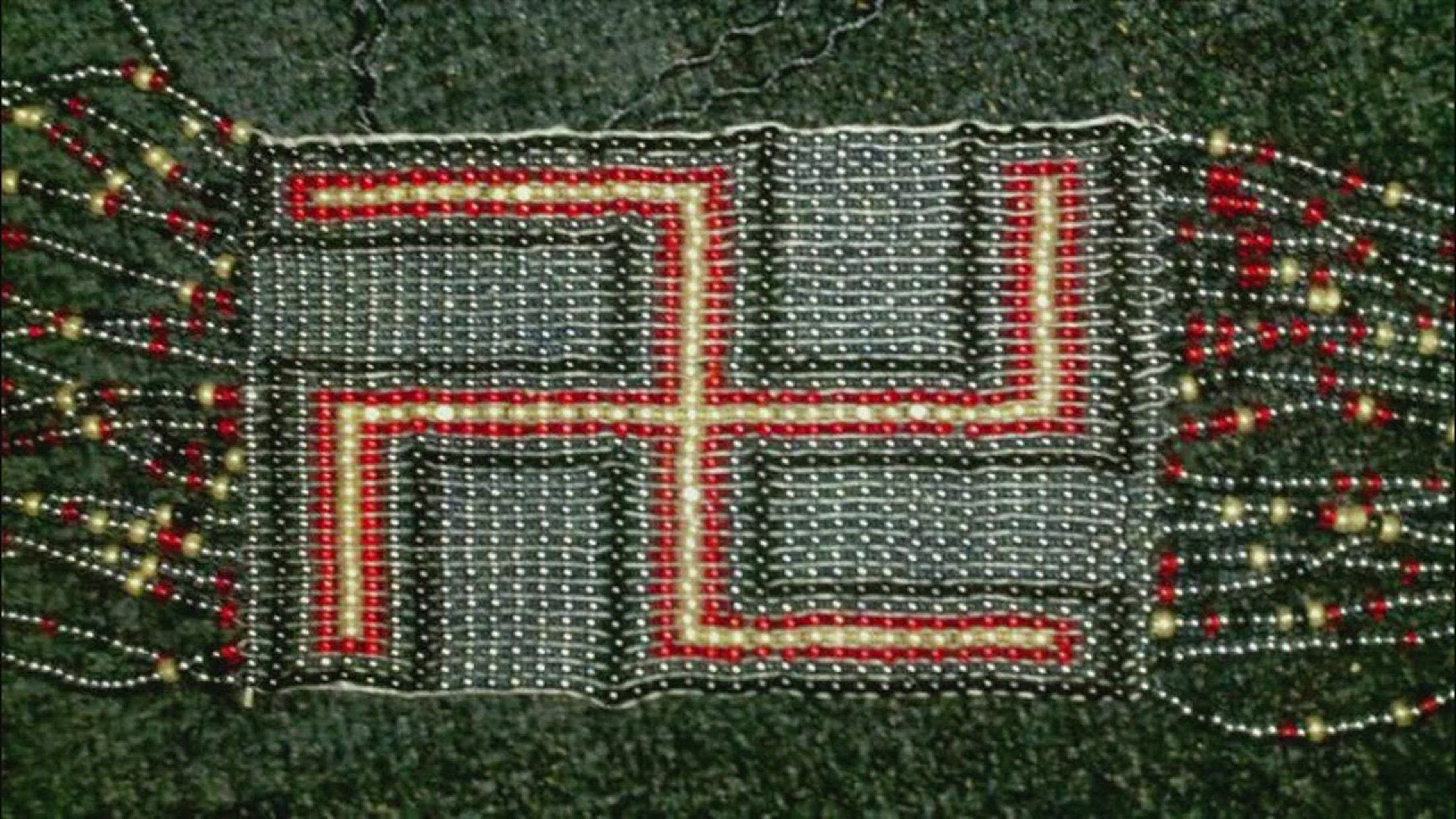PHOENIX - Yolanda Hart Stevens proudly wears a ring bearing four symbols that, to the untrained eye, could be confused with the Nazi Party's swastika.
"This is a very common image among Native people, indigenous people around the world," Stevens said.
The swastika has evolved into one of the most recognizable symbols of hate and racism. It can instantly elicit emotions from those who see it and, most of time, its presence is not tolerated.
But for indigenous tribes across the world, the symbol is very similar to one that was once widely used and believed to represent the opposite of evil.
"It has to do with peace, harmony and balance," Stevens said. "That's something we all wear proudly and continue to wear proudly."
Stevens is a member of the Pee-Posh and Kwatsan tribes and says her family's crest is very similar to the swastika. She points out the Nazi Party's symbol is reversed, spinning clockwise, compared to the one she wears.
The symbol is tattooed on her body, sewn on her clothes and etched into her jewelry because she says it represents a piece of her and who she is.
Nazi Flags bearing the swastika were spotted among some protestors who gathered at the Charlottesville rally that quickly turned deadly. Stevens says it angers her to see a symbol she looks to for harmony and balance be used in a way that promotes hate.
A story published in the "Prescott Evening Courier" on Feb. 26, 1940 states the Navajo, Papago, Hopi and Apache tribes signed a proclamation station they would no longer use their symbol because it had been "desecrated by another nation of peoples."
The article also stated a decline in the sales of arts and crafts bearing their symbol also was a factor in the decision.
Decades later, the symbol is hardly used and Stevens says she finds herself having to defend her cultural beliefs that existed long before Adolf Hitler and his Nazi Party.
"It only took one person that took that image and completely desecrated it," she said. "This is 2017 and we're still having to defend it."

